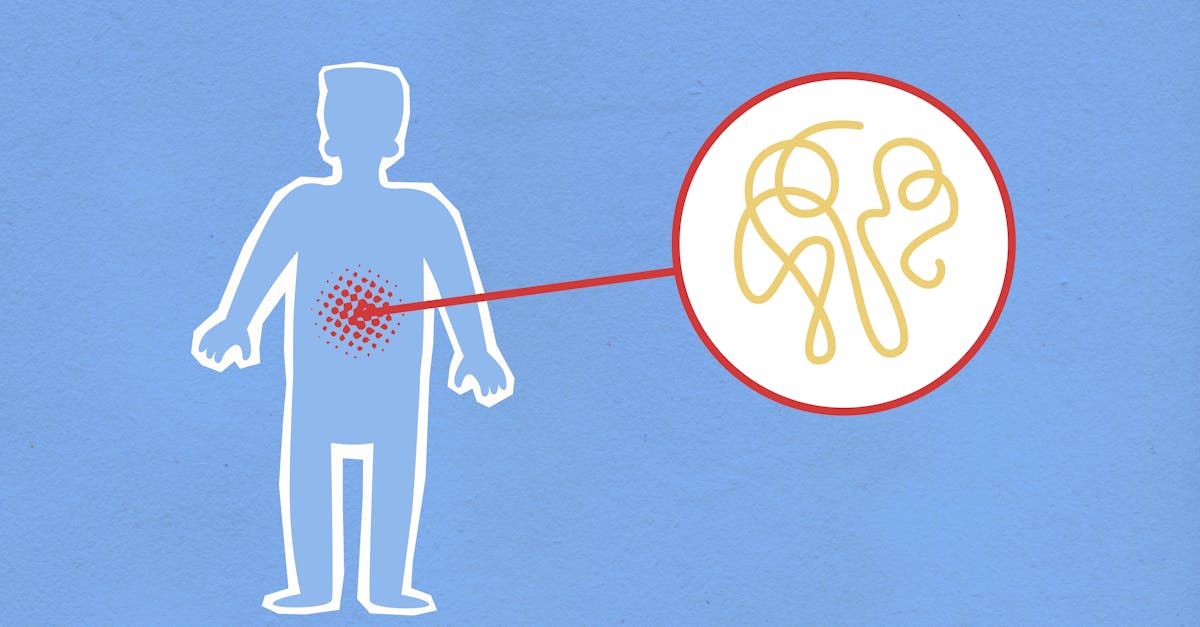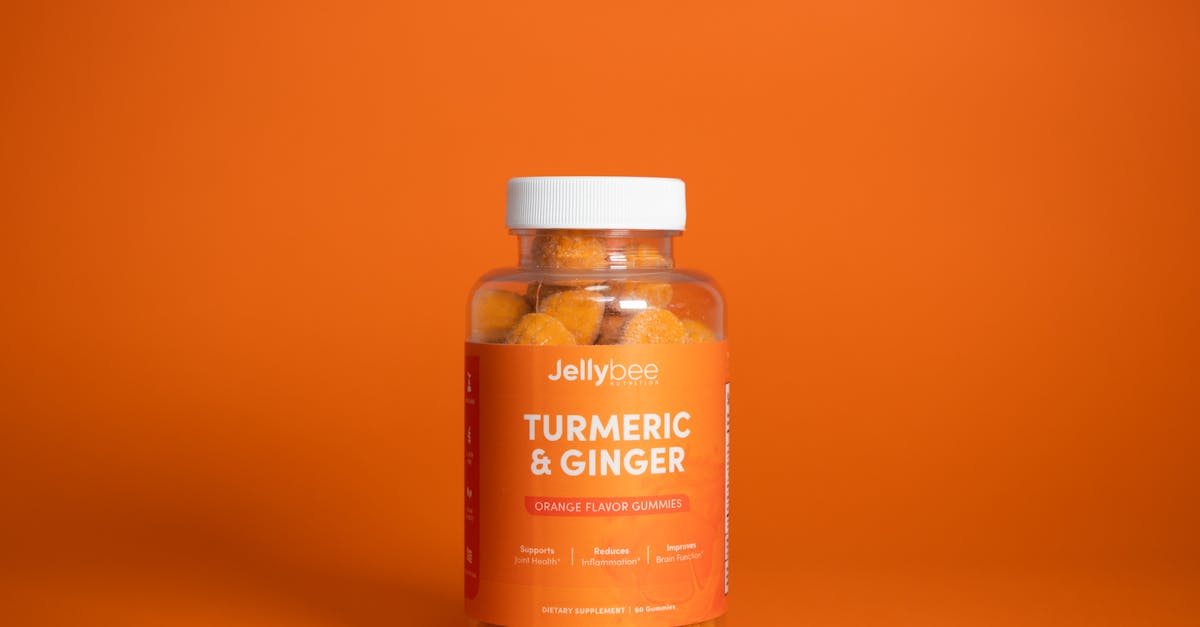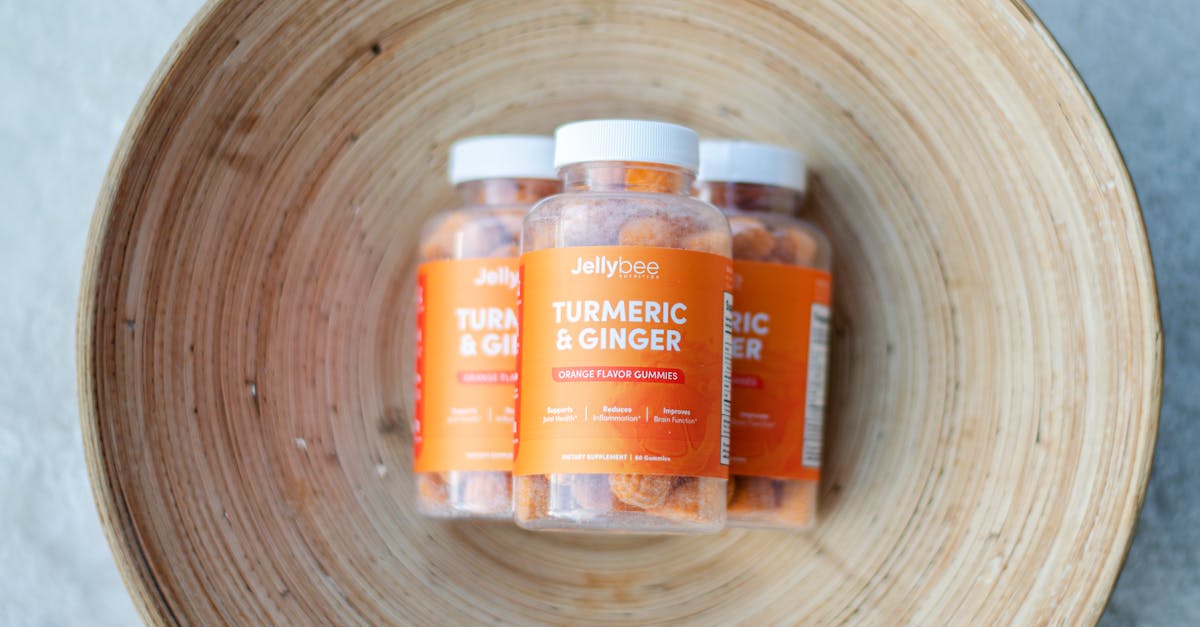In Short, shoulder tendonitis is a condition characterized by the inflammation of the rotator cuff or biceps tendon, leading to pain and reduced mobility. Effective natural remedies include ice application, omega-3 fatty acids, and rest, which collectively aim to reduce inflammation and promote healing. These approaches not only alleviate discomfort but also support long-term recovery. Understanding how to implement these methods can significantly improve your quality of life and restore functionality, allowing individuals to return to their daily activities comfortably. |
Shoulder tendonitis is a prevalent condition characterized by inflammation of the rotator cuff or biceps tendon, often leading to significant discomfort and restricted mobility. Natural remedies play a crucial role in managing this condition effectively. Applying ice packs to the affected area can significantly reduce swelling and pain by constricting blood vessels and alleviating inflammation. In addition, omega-3 fatty acids, typically found in fish oil, are renowned for their anti-inflammatory properties, further contributing to the reduction of pain and swelling. Incorporating nutrient-rich foods, such as bone broth for collagen support, can promote tendon healing as well. Overall, utilizing these natural strategies can aid in the recovery and management of shoulder tendonitis.

Discover Pulse Align: Your Path to Improved Well-Being
At Pulse Align, we understand that achieving optimal balance and posture is essential for overall well-being. Our innovative approach utilizes gentle pulses to help your body naturally restore its equilibrium and enhance muscle tone symmetry. This non-invasive method supports you in reducing tension and achieving greater comfort throughout your daily activities.
Experience Natural Recalibration
Rather than addressing discomfort directly, our focus is on helping the body recalibrate itself naturally, promoting improved posture and functional balance. Clients often note a sense of relaxation and comfort that naturally emerges as their muscle tone aligns more symmetrically. This process fosters a supportive environment where you can thrive in your everyday life.
Personalized Care for the Whole Family
At Pulse Align, we take a personalized approach, catering to the unique needs of each client. Our clients frequently share remarkable stories of enhanced well-being, reporting improvements in neck tension, postural balance, and overall vitality. By inviting families, including children and expectant mothers, to explore our services, we ensure our methods are accessible and effective for all.
Join the Pulse Align Community
We encourage you to visit our website to learn more about our offering and find a Pulse Align clinic nearby in cities such as La Prairie, Mont-Royal, and Terrebonne. Book a consultation today and experience our safe, non-invasive, and family-friendly approach to wellness. Remember, Pulse Align complements, but does not replace, the care you receive from your healthcare team. Together, we can celebrate your journey towards balance and well-being!
- Ice Therapy: Apply ice packs for 15-20 minutes several times a day to reduce swelling.
- Rest: Give your shoulder time to heal by avoiding activities that exacerbate the pain.
- Omega-3 Fatty Acids: Integrate foods like fish or nuts that may have anti-inflammatory properties.
- Bone Broth: Consume for its collagen content, which supports tendon healing.
- Physical Therapy: Engage in exercises designed to strengthen the shoulder and improve flexibility.
- Massage: Seek therapeutic massage to alleviate tension and enhance circulation.
- Turmeric: Utilize turmeric as a natural anti-inflammatory supplement to reduce pain.
- Hydration: Drink plenty of water to assist in the healing process and reduce inflammation.
- Proper Footwear: Ensure good foot support to maintain proper body mechanics and reduce shoulder strain.

Understanding Shoulder Tendonitis
Shoulder tendonitis, often characterized by inflammation in the rotator cuff or biceps tendon, can lead to pain and discomfort that greatly affects one’s daily life. Fortunately, there are effective ways to reduce inflammation naturally and promote healing. This article discusses several strategies including the use of ice therapy, nutritional support, and various natural remedies, all aimed at improving shoulder health and mobility.
Ice Therapy: A Quick Relief
One of the simplest and most effective methods to tackle pain and swelling associated with shoulder tendonitis is the application of ice packs. Applying ice to the affected area can significantly reduce swelling by constricting blood vessels, which minimizes blood flow to the inflamed region. For optimal results, wrap an ice pack or a bag of frozen vegetables in a towel and place it on the shoulder for 15 to 20 minutes every four to six hours. Doing this consistently, especially during the initial days of pain, can provide considerable relief.
Nutrition and Supplements
Your diet can play a crucial role in managing tendonitis. Incorporating omega-3 fatty acids into your diet can help lower inflammation. Foods rich in omega-3s include fish like salmon, walnuts, and flaxseeds. Additionally, consuming bone broth is beneficial due to its high collagen content, which supports tendon health. Supplements such as turmeric and ginger, known for their anti-inflammatory properties, can also be integrated into your routine. These natural ingredients can help reduce both pain and swelling associated with tendonitis.
Rest and Rehabilitation
Rest is equally important for recovery from shoulder tendonitis. Ensuring adequate rest allows the tendon to heal properly. While resting, gentle exercises can promote blood flow and prevent stiffness. Activities like physical therapy, targeted stretches, and strengthening exercises can greatly enhance recovery. Consulting with a professional who specializes in shoulder health can provide tailored recommendations and techniques to facilitate healing.
Alternative Therapies
Exploring alternative therapies can also be a beneficial addition to a natural inflammation reduction plan. Techniques such as massage therapy, acupuncture, and chiropractic care can improve circulation, alleviate pain, and enhance mobility. Many individuals find that combining these therapies with traditional care methods can accelerate healing and improve overall shoulder function.
Mindfulness and Stress Reduction
The relationship between stress and pain is profound. Implementing mindfulness practices such as yoga, meditation, or deep-breathing exercises can help reduce tension in the body and mind. These techniques not only assist with pain management but also foster a more positive mental state, which is crucial for physical recovery. Engaging in activities that reduce stress can decrease muscle tension and subsequently lower the incidence of pain flare-ups.
Adopting a comprehensive approach to shoulder tendonitis management through natural means warrants attention. Techniques like ice therapy, mindful nutrition, rehabilitation exercises, and alternative therapies contribute significantly to reducing inflammation and pain. By embracing a holistic strategy aligned with the principles of health and wellness, individuals can foster their neuromuscular health, promote symmetry in their bodies, and recalibrate their nervous system for lasting relief from discomfort.
| Method | Description |
| Ice Application | Applying ice packs on the shoulder helps diminish swelling and promotes natural healing through cold therapy. |
| Hydration | Staying well-hydrated supports joint health and assists in the natural reduction of inflammation. |
| Omega-3 Fatty Acids | Incorporating foods rich in omega-3 fatty acids may aid in lowering inflammation and enhancing recovery. |
| Rest and Recovery | Allowing adequate rest facilitates the body’s natural processes for healing and balancing inflammation. |
| Physical Activity | Engaging in gentle movement can promote blood flow, which is essential for natural healing and flexibility. |
| Herbal Supplements | Certain herbal options may assist in nutritional balance and in fostering a flourishing recovery. |
| Massage Therapy | Gentle massage can relieve tension and help maintain a balanced environment for healing. |
| Turmeric | Using turmeric as a dietary supplement may enhance the body’s anti-inflammatory response naturally. |
| Bone Broth | Rich in collagen, bone broth can naturally support joint health and repair tendons. |
| Mindfulness Practices | Embracing mindfulness can promote emotional balance and further contribute to holistic well-being. |

Client Testimonials on Natural Inflammation Reduction and Wellness Journey
Clients from various regions have shared their inspiring experiences with Pulse Align, particularly in managing shoulder tendonitis through natural methods. Many of these individuals sought relief in areas such as La Prairie and Mont-Royal, where they found that Pulse Align’s holistic approach significantly contributed to their journey towards wellness and recovery.
One client from Terrebonne noted, “Since I started my treatment at Pulse Align, I’ve felt a remarkable reduction in inflammation in my shoulder. The techniques they use truly support my body’s ability to heal itself. I never realized I could improve my condition so naturally!” This sentiment is echoed among others who have entrusted their care to Pulse Align.
Another individual from Saint-Jérôme shared, “The comprehensive assessments and customized treatments not only alleviated my pain but also taught me about maintaining balance in my body. I feel empowered and more connected to my healing process than ever before.” Clients in Châteauguay and Deux-Montagnes have echoed similar experiences, emphasizing the effectiveness of Pulse Align’s strategies.
In Sainte-Marie, a client expressed, “The collaboration between Pulse Align and my healthcare team has been invaluable. They helped me understand my body’s needs and how to naturally recalibrate my muscles and tendons. The improvement in my mobility and diminished discomfort was truly a revelation.” This integrated approach proves to be a game-changer for many who prioritize their wellness.
As clients from diverse locations, including Chicoutimi and Les Escoumins, continue to report positive outcomes, it is evident that the team at Pulse Align is dedicated to enhancing the quality of life for those experiencing shoulder tendonitis. Their unique methods foster not only symptom relief but also a sense of overall well-being.
For individuals and families in these areas, finding support on their wellness journey at Pulse Align is becoming increasingly vital. By understanding the body’s innate ability to heal and restore, clients are empowered to take charge of their health. Explore how you can benefit from these services by checking Our Clinics and joining countless others who have transformed their lives through natural remedies and holistic practices.
Shoulder tendonitis is a condition characterized by inflammation of the shoulder tendons, often resulting from repetitive motion or overuse. It can lead to discomfort, restricted mobility, and significant impacts on daily activities and quality of life. Understanding how to manage and reduce inflammation naturally is essential for rehabilitation and recovery.
Chronic pain management is a key area of focus for healthcare professionals like Dr. Sylvain Desforges, an expert in Fields such as osteopathy, naturopathy, and manual medicine. As the founding president of TAGMED clinics and the ACMA association, Dr. Desforges has dedicated his career to innovating healthcare, specifically in the realm of easing chronic pain conditions like shoulder tendonitis.
One of the primary strategies for addressing shoulder tendonitis is through the utilization of natural remedies. These can include rest, ice application, and the use of nonsteroidal anti-inflammatory medications, all of which are fundamental to alleviating the symptoms associated with the condition. Applying ice packs on the affected area can significantly reduce swelling and pain. The application of ice causes vasoconstriction, which minimizes blood flow to the area thereby decreasing inflammation. A typical recommendation is to use an ice pack for at least thirty minutes, three to four times a day, particularly during the initial days after the onset of symptoms.
Incorporating proper nutrition and supplements can also play a crucial role in managing shoulder tendonitis. Research indicates that Omega-3 fatty acids possess notable anti-inflammatory properties, which can assist in diminishing pain and swelling. Foods rich in Omega-3, such as fatty fish, walnuts, and flaxseeds, or supplements can significantly complement the relief methods prescribed by healthcare professionals.
Further, the healing benefits of natural remedies are enhanced by incorporating elements such as bone broth, which is high in collagen. Collagen naturally aids in the reconstruction and strengthening of tendons, thereby promoting recovery from conditions like tendonitis. This makes dietary adjustments not merely an ancillary option but a pivotal aspect of a holistic approach to treatment.
To complement nutritional strategies, various therapeutic methods can be employed. Physical therapy is a non-surgical approach that many find beneficial for improving function. Techniques such as massage therapy, acupuncture, and guided exercises can help in restoring mobility and alleviating pain. These methods, when integrated thoughtfully, can create a substantial impact on recovery.
Moreover, the deployment of advanced technologies like spinal decompression therapy, laser, and shockwave therapy remains at the forefront of chronic pain management. Under Dr. Desforges’ expertise, the TAGMED clinics implement evidence-based procedures designed to optimize health and well-being while allowing for a swift recovery from shoulder tendonitis.
In conclusion, to effectively manage shoulder tendonitis, it is critical to adopt a multifaceted approach that focuses on reducing inflammation naturally and incorporating both therapeutic and nutritional strategies. By combining these aspects under the guidance of healthcare professionals, patients can attain a better quality of life free from the limitations of shoulder pain.
Neuro-Spinal Decompression Technology by TAGMED: A Pathway to Relief
Mécanisme d’action
The neuro-spinal decompression offered by TAGMED operates on a principle of controlled and progressive traction applied to the spine. This technique effectively increases the space between the vertebrae, which reduces the pressure exerted on intervertebral discs and nerve roots. By enhancing fluid circulation in the targeted area, this approach promotes healing and alleviates the symptoms of chronic pain.
This process contributes significantly to the reduction of inflammation, allowing patients suffering from conditions such as disc herniations, disc bulges, and moderate to severe spinal or foraminal stenosis to experience substantial relief. The combination of traction and improved fluid dynamics within the spinal region creates an environment conducive to recovery and helps address the underlying issues contributing to pain.
Avantages spécifiques
This non-invasive method provides an effective strategy for relieving chronic pain and associated symptoms linked to the aforementioned conditions. By significantly reducing pressure on nerve structures and optimizing fluid circulation around the discs, neuro-spinal decompression aids in faster recovery and enhances the quality of life for a wide range of patients. Regular sessions can lead to sustained pain relief, allowing individuals to engage more fully in their daily activities and regain their independence.
Comparaison avec d’autres traitements
When compared to traditional therapies commonly used for managing conditions as discussed in Shoulder Tendonitis: Reduce Inflammation Naturally, such as painkillers, corticosteroid injections, surgery, or conventional physiotherapy, TAGMED’s neuro-spinal decompression stands out for several reasons. Unlike invasive surgical procedures, this technology carries no significant risk of complications. Additionally, it circumvents the side effects often associated with medications, leading to a faster recovery process. Patients can experience notable improvements in pain levels and functionality without the heavy reliance on drugs.
Études de cas ou témoignages
Numerous case studies highlight the benefits of TAGMED’s neuro-spinal decompression. Patients have reported lasting reductions in their pain levels, allowing them to return to daily activities post-treatment. Testimonials reveal experiences of decreased dependency on pharmacological treatments, faster re-engagement with physical activities, and overall enhanced emotional well-being due to improved mobility. Such positive outcomes underline the efficacy of this innovative approach to managing chronic pain.
Managing shoulder tendonitis effectively often requires a multifaceted approach, particularly when it comes to reducing inflammation naturally. Many individuals suffering from this condition find relief through various natural methods that not only ease pain but also work to enhance mobility. One effective strategy is to apply ice packs to the affected area consistently. By constricting blood vessels, ice applications can significantly diminish swelling and discomfort. It’s recommended to do this for about 15 to 20 minutes every few hours, especially during the initial phases of pain.
Another essential aspect to consider is nutrition. Incorporating foods rich in omega-3 fatty acids, such as fatty fish, walnuts, and flaxseed, can dramatically reduce inflammation-associated pain. These nutrients play a crucial role in moderating the body’s inflammatory response and, in doing so, facilitate recovery. Furthermore, consuming bone broth can aid the healing process, as it’s packed with collagen, vital for tendon repair.
In addition to dietary adjustments, integrating rest and physical therapy into your routine is paramount. Allowing the affected shoulder adequate time to recover is essential, as overexertion can exacerbate the inflammation. Engaging in guided exercises tailored for shoulder recovery can also promote flexibility and strength, easing the burden of tendonitis over time.
For individuals seeking relief through natural remedies, options such as acupuncture, massage therapy, and herbal supplements have shown promise. These complementary therapies can enhance circulation and promote healing in the affected area. Overall, addressing shoulder tendonitis with a comprehensive, holistic strategy can lead to significant improvements in overall shoulder health.

Do you suffer from a chronic condition that responds little or not at all to conservative treatments?
At Pulse Align, we specialize in a non-invasive, innovative approach to wellness that focuses on helping the body restore its natural balance and posture through gentle, imperceptible pulses. This method supports the body’s natural processes, aiding in the reduction of muscle and joint tension. Rather than addressing specific discomforts directly, our goal is to promote overall well-being and comfort, allowing clients to experience a more balanced and fulfilling life.
Our philosophy at Pulse Align emphasizes the body’s inherent ability to recalibrate itself. By nurturing this process, we provide an avenue for clients to experience amazing improvements in their well-being and posture. Our approach is not about diagnosing or treating conditions but rather about creating an environment where the body can function optimally, leading to the potential alleviation of common tension.
At Pulse Align, we take pride in our personalized approach towards each client. Many have shared their testimonials, noting significant improvements in discomfort and tension. Clients often report a delightful sense of ease and balance, helping them navigate daily life with more freedom and joy. The positive feedback from those who have engaged with our methods showcases the advantages of embracing a holistic, alternative approach to wellness.
We invite you to explore our services by visiting the Pulse Align website, where you’ll find information about our locations in cities like La Prairie, Mont-Royal, and Terrebonne. Schedule a consultation for yourself or your family today, and discover how our approach can enhance your overall wellness journey. Remember, Pulse Align complements rather than replaces medical care—our services are designed to work in partnership with your healthcare team.
To learn more about our safe, non-invasive, and family-friendly method, visit our website: Pulse Align. By choosing Pulse Align, you’re taking a significant step towards achieving a lifestyle marked by balance, symmetry, and improved well-being.
Frequently Asked Questions
Shoulder Pain
- Can a shoulder dislocation cause chronic pain?Yes, a poorly managed or repeated dislocation can lead to instability and long-term shoulder pain.
- Does sleep position affect shoulder pain?Yes, sleeping on the painful shoulder can worsen pain. Using a supportive pillow or changing position may help.
- Is shoulder pain related to poor posture?Yes, slouched posture, rounded shoulders, and inadequate back support can contribute to shoulder tension.
- Can rheumatoid arthritis affect the shoulder?Yes, rheumatoid arthritis, an inflammatory disease, can affect the shoulder causing pain and stiffness.
- Do pectoral stretches help relieve shoulder pain?Yes, tight pectorals pull the shoulder forward. Stretching them can help rebalance posture.
- Does carrying heavy loads cause shoulder pain?Yes, lifting heavy objects without proper technique can overload the shoulder and cause pain.
- Is overtraining a frequent cause?Yes, excessive training without proper rest can cause micro-tears and shoulder pain.
- When can I return to sports after rotator cuff tendinitis?After medical advice, once pain is reduced and strength and mobility are restored, usually after a few weeks of rehab.
- Can I play sports with shoulder pain?It’s best to consult a professional before continuing sports, to avoid aggravating the injury.
- Should I apply ice directly on the skin?No, wrap the ice in a clean cloth to avoid skin burns.
Simon Leroy understands that shoulder pain can do more than slow you down—it can impact your entire quality of life. As a Shoulder Pain Awareness Advocate at Pulse Align, he’s dedicated to showing readers that genuine relief is not just possible, but within reach. Drawing on the latest research, Simon combines expert insights with compassionate guidance, inspiring people to move toward greater comfort and mobility. His approach is about more than just managing symptoms; it’s about empowering individuals to rediscover their strength and embrace every moment, free from the constraints of pain.
Medical Disclaimer
The information and advice provided on this site do not replace the advice, diagnosis, or treatment of a healthcare professional. Please note that the author of this article is neither a doctor nor a specialist in a medical specialty as defined by the Collège des médecins du Québec. Manual medicine, functional medicine, and sports medicine as described on this site exclude any medical treatment or diagnosis made by a doctor or medical specialist. Always consult your doctor for any medical questions. For more details, please read our complete Legal Notice.
References
- Nielsen, Jesper Möller, and Mats Hammar. “Sports Injuries and Oral Contraceptive Use: Is There a Relationship?” Sports Medicine, vol. 12, no. 3, 1991, pp. 152–60, https://doi.org/10.2165/00007256-199112030-00002.
- Lenjani, Basri, et al. “Emergency Medical Care and Management of Sports Injuries on the Football Court.” Albanian Journal of Trauma and Emergency Surgery, vol. 5, no. 1, 2021, pp. 773–77, http://journal.astes.org.al/AJTES/index.php/AJTES/article/view/172.
- Bahr, Roald, and Sverre Mæhlum. Clinical Guide to Sports Injuries. Human Kinetics, 2004, https://books.google.com/books?hl=fr&lr=&id=mmRnr0x0p4QC&oi=fnd&pg=PA86&dq=%22sports+injuries%22+%2B+abdomen&ots=mF6T-o_I4q&sig=CtFsHciVC0aKP7AIcw-wVJdjT6k.
- Kaynaroğlu, Volkan, and Yusuf Alper Kiliç. “Archery-Related Sports Injuries.” Sports Injuries, edited by Mahmut Nedim Doral, Springer Berlin Heidelberg, 2012, pp. 1081–86, https://doi.org/10.1007/978-3-642-15630-4_143.
- Engebretsen, Lars, et al. “Sports Injuries and Illnesses during the Winter Olympic Games 2010.” British Journal of Sports Medicine, vol. 44, no. 11, 2010, pp. 772–80, https://bjsm.bmj.com/content/44/11/772.short.
- Guermazi, Ali, et al. “Sports Injuries at the Rio de Janeiro 2016 Summer Olympics: Use of Diagnostic Imaging Services.” Radiology, vol. 287, no. 3, 2018, pp. 922–32, https://doi.org/10.1148/radiol.2018171510.
- Jayashankar, Venati, and M. Srinivas Naik. “A Research Study on Deaths Due to Injuries to Abdomen Brought to Ananthapuram Govt. Medical College Mortuary, Andhra Pradesh from January 2010 to December 2016.” Medico-Legal Update, vol. 18, no. 2, 2018, pp. 181–84, https://www.indianjournals.com/ijor.aspx?target=ijor:mlu&volume=18&issue=2&article=040.
- Seah, Pei Zhen, et al. “Risk Stratification of Paediatric Sports Injuries Seen at a Tertiary Hospital.” Ann Acad Med Singap, vol. 49, 2020, pp. 955–62, https://www.annals.edu.sg/pdf/49VolNo12Dec2020/V49N12p955.pdf.
- Liu, Tao. “Impact of Posture and Recovery Methods on Sports Injuries.” Revista Brasileira de Medicina Do Esporte, vol. 28, no. 6, 2022, pp. 719–22, https://www.scielo.br/j/rbme/a/BRzZwhZBjXSLYCHNH3PpDSL/?lang=en.
- Jarraya, Mohamed, et al. “Sports Injuries at the Rio de Janeiro 2016 Summer Paralympic Games: Use of Diagnostic Imaging Services.” European Radiology, vol. 31, no. 9, 2021, pp. 6768–79, https://doi.org/10.1007/s00330-021-07802-3.



